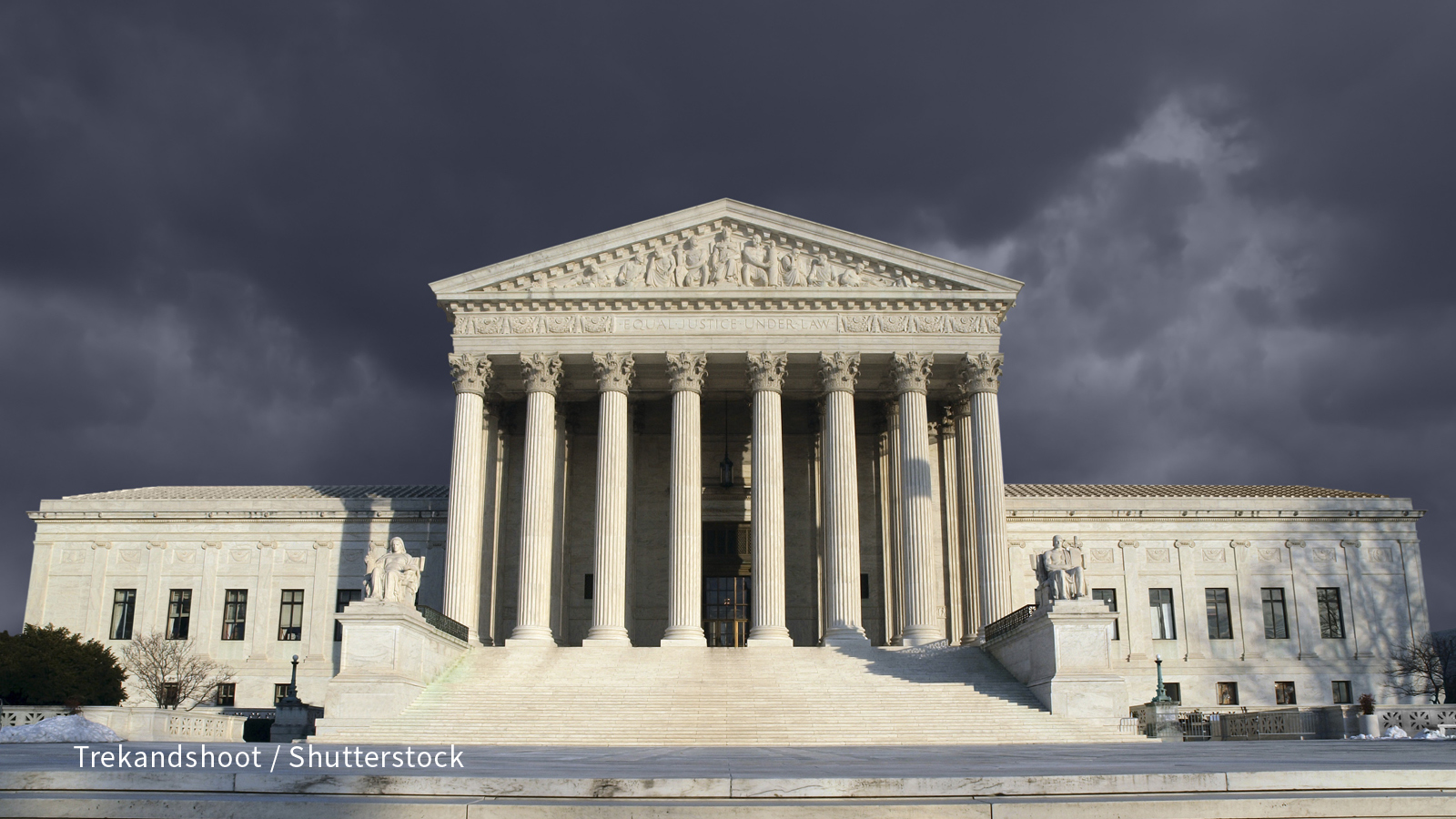
The U.S. Supreme Court’s ruling today in a case brought by an anti-gay business owner against the state of Colorado will embolden religious bigots to deny service to LGBTQ-plus Americans, charges the Freedom From Religion Foundation.
“Once again, the Trump-packed high court has issued an uncaring, dishonest ruling that privileges religion, in this case permitting religionists to deny rights to other citizens solely on the basis of religious prejudice,” comments FFRF Co-President Annie Laurie Gaylor.
In 303 Creative v. Elenis, the court has ruled in a 6-3 decision that the Colorado Anti-Discrimination Act violates the free speech rights of a Christian website designer who does not wish to provide wedding websites to same-sex couples, citing her religious beliefs. Businesses that engage in some forms of expression on behalf of clients now have an expanded ability to discriminate.
Justice Neil Gorsuch authored the majority opinion, which was joined by the other conservative justices. Gorsuch’s opinion holds that Colorado would unconstitutionally compel speech if a website designer would have to serve same-sex couples by providing a wedding website. The opinion determined that wedding websites by 303 Creative are messages on behalf of the business owner, not just the couple, and that such messages are “pure speech” — warranting the highest First Amendment protection.
FFRF had filed a friend-of-the-court brief in the case arguing that the challenge was manufactured from the outset. Its brief contended that the wannabe wedding website designer was seeking to sidestep the Constitution’s “case or controversy” requirement because she had never actually designed wedding websites and therefore had never refused an LGBTQ client or been subject to a complaint under the Colorado Anti-Discrimination Act. The 10th U.S. Circuit Court of Appeals ruled in favor of the state of Colorado and found that her free speech rights are not violated by the law.
FFRF had sounded the alarm when oral arguments were heard in the case last December. An ominous portent was Gorsuch’s remark to Colorado Solicitor General Eric Olson over the state’s enforcement history in the Masterpiece Cakeshop case, charging that the state put the baker who denied services to a gay couple through a “reeducation program.”
Justice Sonia Sotomayor has authored a stinging dissent in the ruling, which was joined by Justices Elena Kagan and Ketanji Brown Jackson. Sotomayor writes: “Today, the court, for the first time in its history, grants a business open to the public a constitutional right to refuse to serve members of a protected class.” The dissent also highlights the fight for LGBTQ equality that the country is facing. Her opinion recounts the backlash, connecting it to the civil rights movement:
New forms of inclusion have been met with reactionary exclusion. This is heartbreaking. Sadly, it is also familiar. When the civil rights and women’s rights movements sought equality in public life, some public establishments refused. Some even claimed, based on sincere religious beliefs, constitutional rights to discriminate. The brave justices who once sat on this court decisively rejected those claims.
Sotomayor calls the majority opinion “profoundly wrong.” She says: “The law in question targets conduct, not speech, for regulation, and the act of discrimination has never constituted protected expression under the First Amendment.”
FFRF warns that the consequences of today’s decision will likely go beyond those of the Masterpiece Cakeshop judgment and inflict lasting damage. Judges have largely viewed the Masterpiece Cakeshop case, which had as its focus claimed “hostility” to religion by the Colorado Civil Rights Commission, as a narrow decision. However, now businesses that engage in some speech may be permitted to broadly assert the right to discriminate as a matter of free speech against any number of protected classes, especially on the basis of sexual orientation and gender identity, even though Gorsuch sought to limit the damage by asserting that there were “innumerable goods and services that no one could argue implicate the First Amendment.”
FFRF, which itself has often encountered problems from merchants refusing to work with it when ordering products such as bumper stickers, T-shirts and buttons, is deeply troubled about what the ruling will mean.
“In the years to come, businesses may begin discriminating against couples seeking to marry because of their religion or lack of religion,” warns FFRF Legal Director Rebecca Markert. “We are concerned that discrimination more broadly has been given the ‘green light’ and that Christian nationalists will seek to wield that against protected groups.”
FFRF is also dismayed that this decision came down on the last day of Pride Month. In a year involving drastic increases in attacks against LGBTQ-plus communities, FFRF reaffirms that its commitment to honoring bodily autonomy, the freedom of expression and basic human dignity goes beyond the month of June.
“We will continue to fight year round for the rights of LGBTQ-plus communities, and all other marginalized groups whose rights are being threatened by the rise of theocracy in the United States,” adds Markert.
The Freedom From Religion Foundation is the largest national association of freethinkers, representing atheists, agnostics, and others who form their opinions about religion based on reason, rather than faith, tradition or authority. It has over 41,000 members across every state and the District of Columbia and several chapters all over the country, including more than 1,300 active members in Colorado and chapters in Denver and Colorado Springs. More than 10 percent of FFRF’s members identify as LGBTQ. FFRF supports civil rights protections for LGBTQ Americans and opposes the radical redefinition of “religious freedom” as the right to impose one’s religious beliefs on others.
